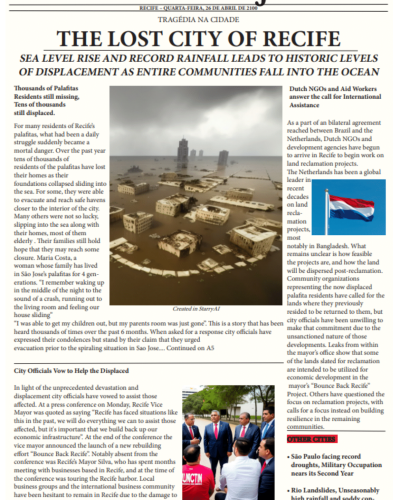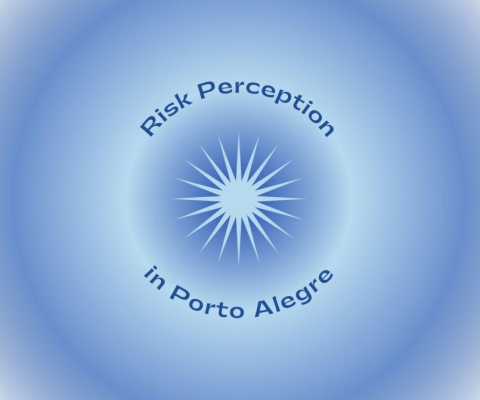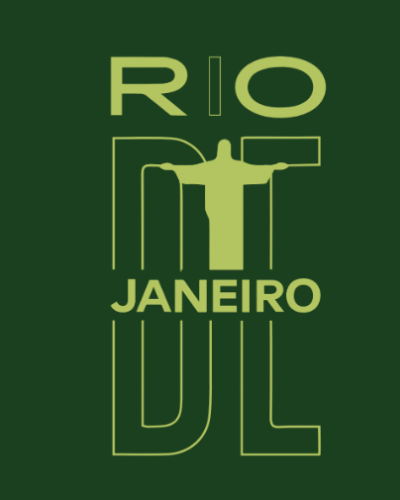
Diplomacy Lab: Latin America Impact Outcomes
Diplomacy Lab: Latin America
Students in the Diplomacy Lab: Latin America course partnered with faculty from the School of International Letters and Cultures and the School for the Future of Innovation in Society to, through a direct partnership with the U.S. State Department and their Diplomacy Lab program, collaboratively investigate how vulnerable urban communities in Brazil adapt and mitigate climate risks. Their work being informed through assigned partners in the U.S. Embassy Brasilia.
The collective teams' research uncovers the lack of risk perception of flooding in Porto Alegre, the profound effects of rising sea levels on the vibrant City of Recife, and the challenges of managing landslides in Rio de Janeiro. Additionally, another research-informed outcome focuses on the disproportionate impacts of drought in Greater São Paulo and explores potential solutions, including grassroots movements and large-scale infrastructure improvements.
Read more about each project below.
Student Outcomes
The Lost City of Recife
The Uncovering the Lost City of Recife Amidst Rising Seas student research outcome delves into an in-depth analysis of the profound impacts of sea level rises on the vibrant City of Recife and its marginalized communities. The work unveils the consequences, challenges, and potential solutions through an informed review of the Diplomacy Lab project. Their final outcome was a mock newspaper front cover and poster which can be viewed here.
Risk Perception in Porto Alegre
This student team's outcome stems from a prompt presented by the US Department of State to Humanities Lab —Diplomacy Lab students. The research task was to investigate the impact of climate change on marginalized communities in Brazil. In this podcast, the team summarizes the results of their research as well as important considerations for designing and implementing effective solutions for the future on a fundamental issue: the lack of risk perception of flooding.
Disproportionate Impacts of and Community Responses to Climate-Induced Drought in Greater São Paulo
This research summary provides details on Greater São Paulo's water scarcity challenges. It highlights the adverse effects of severe drought from 2012 to 2015, including water rationing, depleted reservoirs, and disruptions to power generation, transportation, and the economy. Disadvantaged communities experience disproportionate hardships and health risks due to water scarcity. Sabesp's initiatives and grassroots movements like "Cisterna Já" promoting household rainwater harvesting systems offer potential solutions. The report emphasizes the need for large-scale efforts, including infrastructure improvements, demand-side reforms, and external investments in grassroots organizations for a sustainable water future in Greater São Paulo. View the outcome here.
Rio de Janeiro
The Rio de Janeiro research team complied a a deep-dive research summary investigating how "causes of landslides (erosion, structural building support, societal, building placement), determining existing limiting factors (land/legal restrictions, finances, geography, topography), and creating short, middle and long-term goals, to offer new insights to manage landslides in Rio de Janeiro" and how they are affecting marginalized populations, homes and corresponding communities. View the outcome here.
Washington DC Trip
Thanks to a generous funding donation from The College, during the last week of the course a team of students from the Diplomacy Lab traveled to the nation's capital to present their semester-long research outcomes to ambassadors and leaders at the U.S. State Department and from the Embassy Brasilia. During the two-day trip students additionally toured key institutions such as the U.S. Capitol and the State Department, and engaged with representatives at Arizona Senator Mark Kelly's office and from the Peace Corps. This immersive experience granted deeper insights into various careers in global foreign policy and sustainability.
Media Coverage
Humanities Lab, ASU. ASU Humanities Lab students present climate change research to government officials in Washington, D.C. By: Stephen Perez (June 12, 2023)
Collaborative Partners
- Department of State
- U.S. Embassy Brasilia
- Interplanetary Initiative SpaceHACK
Note: The views presented or expressed on this page are those of the speaker or author only and do not necessarily represent the views of Arizona State University.




